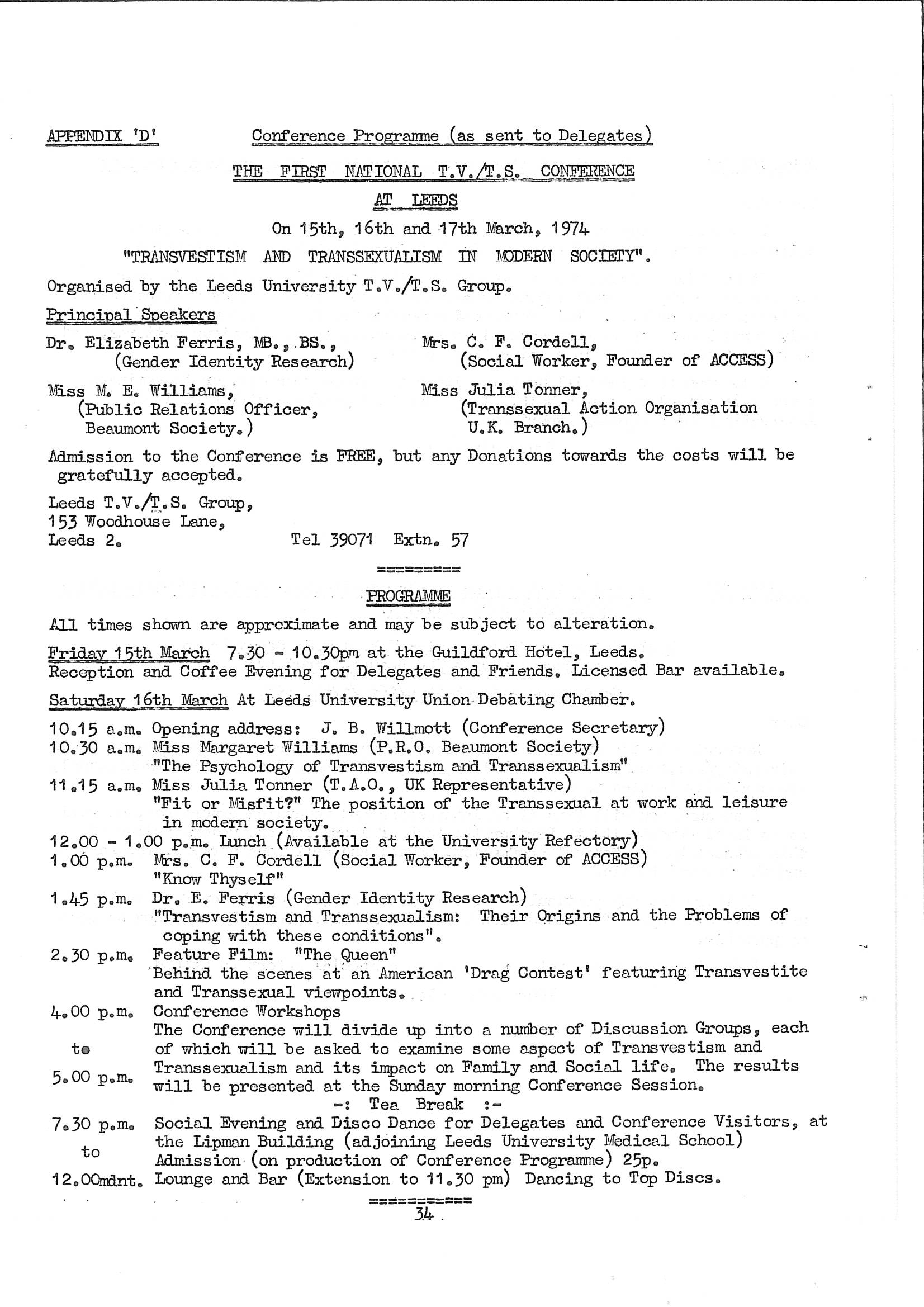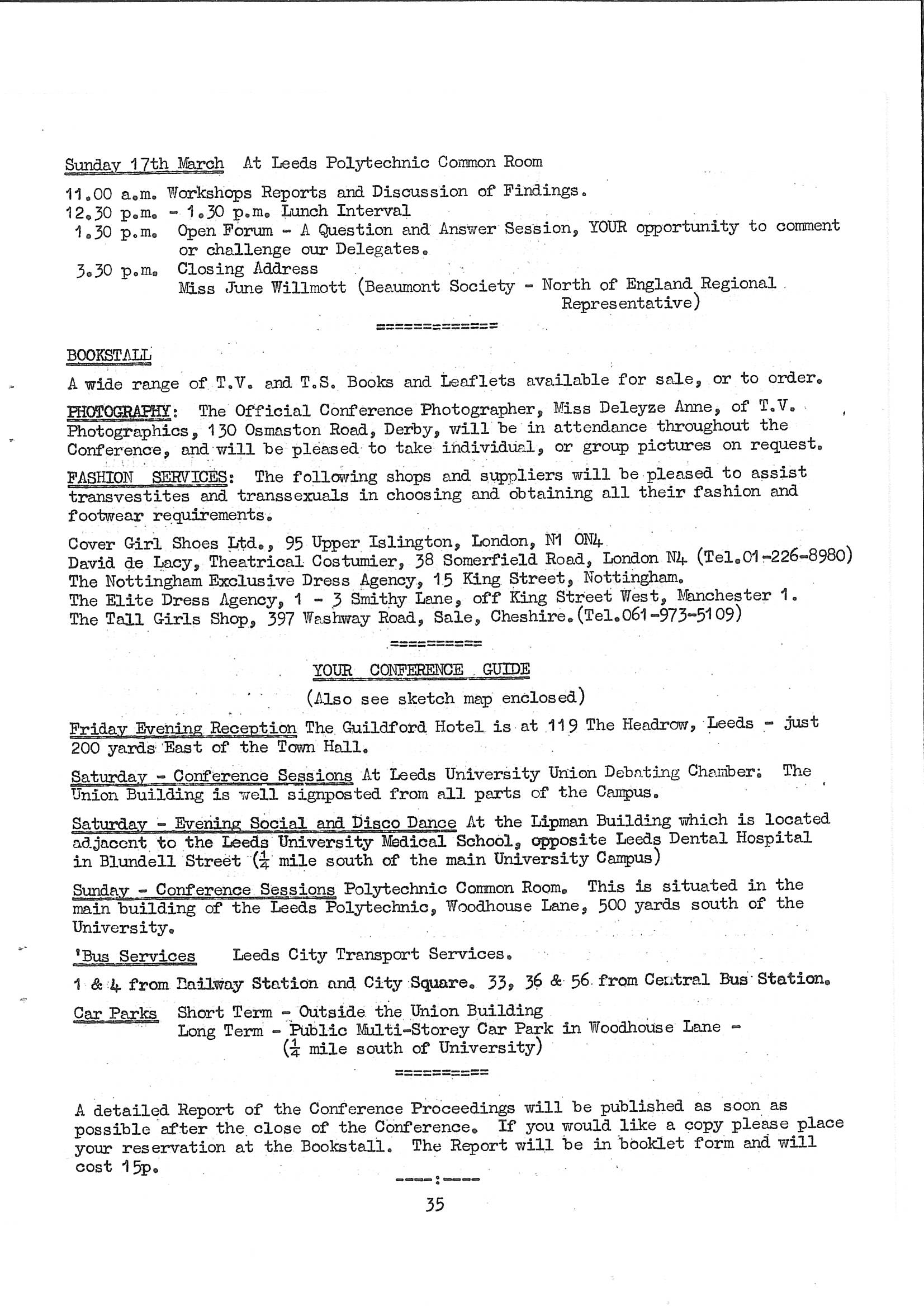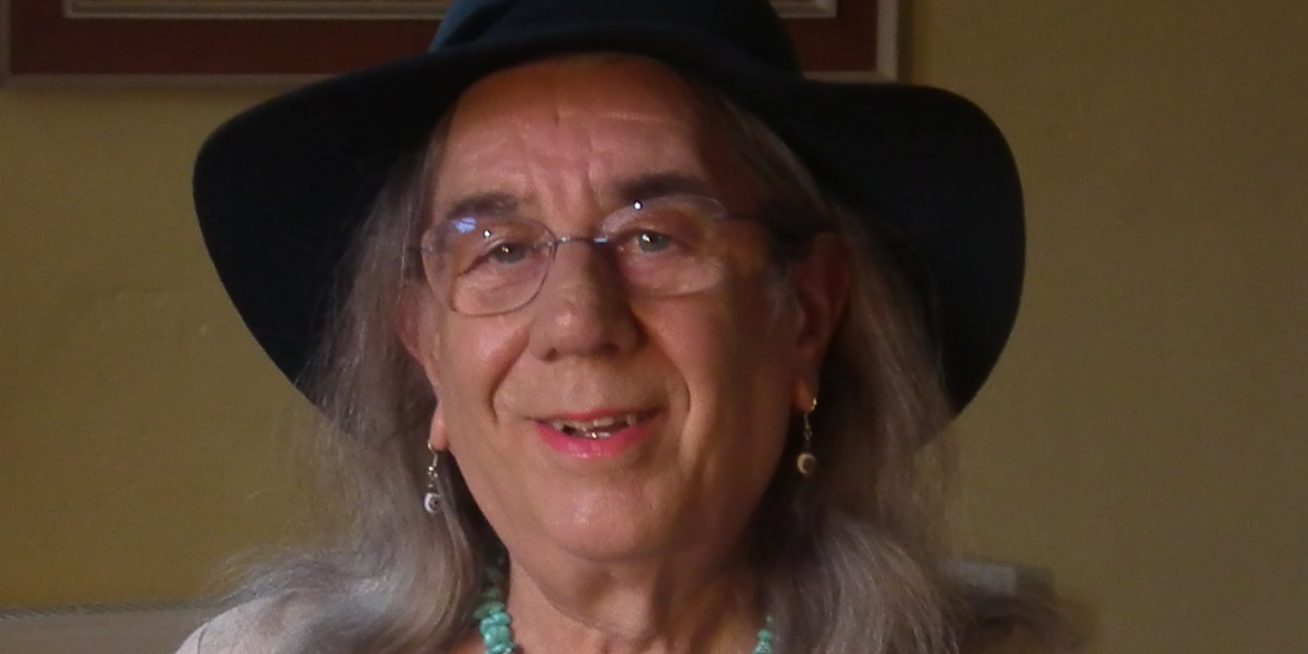The UK's first national trans conference
On 15 March 1974, the Guildford Hotel hosted a reception and coffee evening as part of ‘Transvestism and Transsexualism in Modern Society’, the UK’s first national conference on trans issues. The reception provided an opportunity for conference attendees who had travelled from further afield to socialise before the conference the next day, and to present as female in a safe environment.
The conference, held at the University of Leeds over the weekend of 16-17 March 1974, was organised by the Beaumont Society, a support group founded in 1966 for people assigned male at birth who lived and identified as female (then referred to as transsexuals) or who preferred to present as female some or all of the time (then referred to as transvestites). This made it not only the UK’s first trans conference, but unique in that it was organised by trans people, for trans people – still unusual today in a world where trans people are more often the objects of study.
The conference featured talks and discussions (including subjects such as the causes of being trans, the support available to trans people, trans people and the law, and the relationship between gender and sexuality) as well as a disco dance, a film screening, and stalls where attendees could buy books, clothes and large-size women’s shoes. It gave attendees the chance to meet other people like them, and to access valuable information about their legal and medical options – both crucial in a pre-internet age. However, although some discussion covered trans men, the Beaumont Society at this time was restricted to people assigned male at birth, and the conference – like society as a whole – largely ignored non-binary identities.
Several local papers reported on the conference: while some were more sympathetic than others, all of them routinely misgendered the conference attendees as “men dressed as women”, as was the norm at the time outside queer communities. Listen to the audio clip to hear the Yorkshire Post report on the Guildford Hotel social. The pages below are from the conference report, held by the Beaumont Society.


TRANSCRIPT
From The Yorkshire Post, 16 March 1974:PLIGHT OF MEN WHO SEEK ACCEPTANCE AS WOMEN
[Please be aware this article contains misgendering.]
Geoffrey Winter meets John/June who is celebrating a breakthrough in Leeds this weekend with the men he calls his sisters…
The cloakroom girl giggled and said that she thought she was seeing things and the assistant manager of the hotel, the Guildford, Leeds, admitted to being a little shocked and surprised.
There were men dressed as women at a reception and coffee evening on the hotel’s first floor.
They had gathered, from various parts of the country, for the first national TV/TS conference, which will begin today at Leeds University.
TV stands for transvestite, which is a man who gains psychological release though dressing as a woman, and TS stands for transsexual, a man who feels that he is a woman trapped in a man’s body.
Knowing what to expect at the hotel, it was still mildly confusing. For the party on the next floor up – 274 Field Battery RA, who were holding their annual reunion – it was downright baffling.
John/June, the conference secretary, seemed a little nervous. Not because he and the men he referred to as sisters were cross dressed, but because “This is a breakthrough. It’s the first time that a conference like this has been attempted, certainly in England, and I want it to be a success.”
There are expected to be about 90 people at today’s conference – roughly half transvestites and transsexuals, the others medical people and social workers.
John/June said: “This is a serious conference. For one thing we want to show people that we haven’t got two heads – that we can act sensibly and respectably as women without causing offence to anyone.”
He and the others had arrived on public transport dressed as women. “This is the risk we take,” said John/June. “We are hoping that in this day and age people will be a bit more tolerant. There has not been a case against any of us of causing a breach of the peace in the last five years. There are certainly more of us out and about than ever before.”
I had asked the hotel’s assistant manager about the toilet arrangements and he had replied, “That’s a good question.” He had not realised precisely what was involved when he had accepted the booking, but added that he would not have turned it down even if he had known.
The booking was in the name of the Beaumont Society, after the Chevalier Beaumont, who served his country as a man in the French Army and as a woman spy in Russia at the court of the Czars. Mata Harry – if you like.
In the event, no problem arose over lavatories. “We are using the ladies,” said John/June. “We have hired this floor. If we used the gents’ toilet it would cause a riot.”
Delyse, who declined to give his male Christian name, said that about one third of transvestites were married, but the percentage was reduced through divorce in relation to transvestite activity.
Some transvestites dressed only as women in their own homes. They were known as ‘closet queens’. Others dressed as women at every available opportunity but reverted to men’s clothes when working.
Transsexuals sought gender realignment. They took female hormones to heighten feminine characteristics and would finally have a ‘sex change’ operation.
Audrey, a transsexual, showed me his insurance card. It was made out in his woman’s name. I asked his age. John/June interjected, “That’s a rude question to ask a lady.” Audrey, who was indistinguishable from a girl, said he was 36.
I was asked by one of the party what my reactions were to being in a room full of men dressed as women. I admitted confusion.
I had reacted like a man toward women – standing up at their approach and pulling up chairs for them… and then realising and wondering why I was doing it.
“That’s the right reaction. That’s what we want,” said the man in the brown wig with the beringed, nail-varnished fingers.
As John/June said, the conference this weekend is serious. “We don’t want any scandalmongers there.” The members want to discuss their situation and its impact on present-day society. They want to hear what professional people in social and medical fields have to say about their compulsive behaviour patterns.
But most of all, they are seeking acceptance.
[END]




